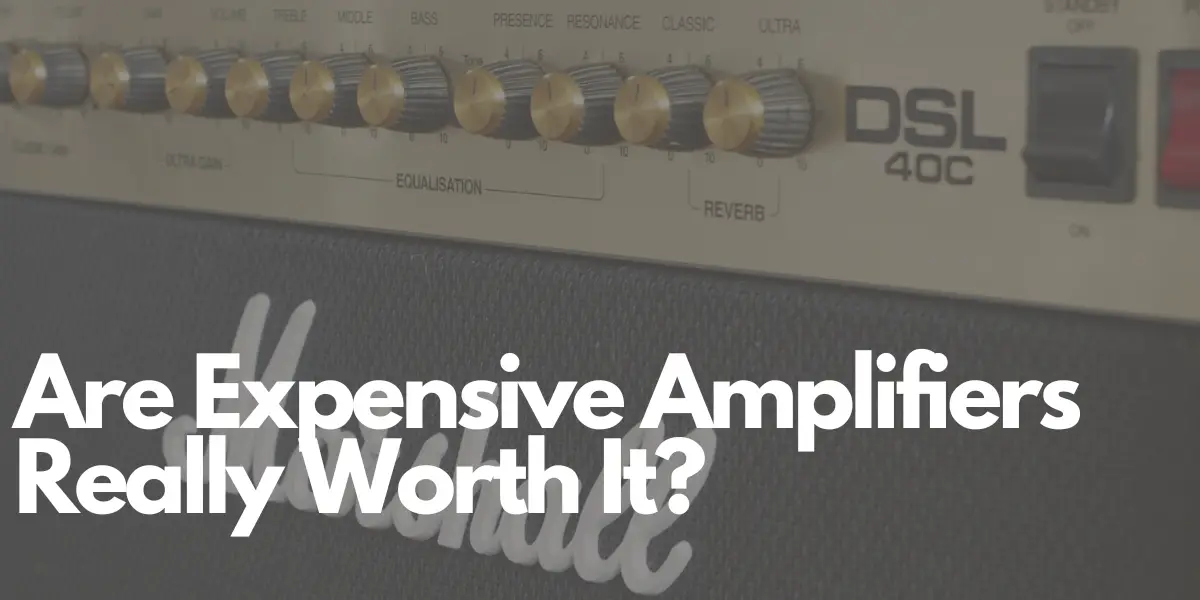The world of audio equipment is a vast and ever-evolving landscape. Audiophiles and music enthusiasts often find themselves in heated debates over what makes a sound system truly exceptional. One question that frequently arises is whether spending big bucks on expensive amplifiers actually results in a significantly better listening experience. In this article, we’ll delve into the factors that influence amplifier performance, the role of price, and whether shelling out more cash for an amplifier translates to better sound quality.
Understanding Amplifiers
Before we delve into the debate of pricey amplifiers, it’s essential to grasp the fundamental function of an amplifier and its contribution to overall sound quality.
At its core, an amplifier’s job is to increase the amplitude of an electrical audio signal. It takes a relatively weak input signal from sources like CD players, turntables, or digital streams and amplifies it to a level suitable for driving speakers. The primary goal is to reproduce the audio signal faithfully without introducing any distortion, coloration, or unwanted noise.
Factors Influencing Amplifier Performance
Several key factors influence the quality of an amplifier’s performance:
1. Power Rating: Amplifiers are rated in watts per channel. It’s vital to ensure that the power rating matches your speakers and listening environment. Too little power can lead to distortion, while too much can potentially damage your speakers.
2. Signal-to-Noise Ratio (SNR): A higher SNR indicates less noise in the amplified signal, which contributes to cleaner sound quality.
3. Total Harmonic Distortion (THD): Lower THD values mean less distortion in the audio signal, resulting in more faithful reproduction of the source material.
4. Frequency Response: A flat frequency response across the audible range ensures that the amplifier doesn’t introduce any coloration by emphasizing or attenuating certain frequencies.
5. Damping Factor: A higher damping factor can provide better control over speaker drivers’ movement, especially in the lower frequencies, enhancing overall audio quality.
6. Build Quality and Components: The quality of internal components, circuit design, and build materials can significantly impact an amplifier’s performance. High-end amplifiers often feature superior components and craftsmanship.
Price vs. Performance
Now, let’s address the central question: Do expensive amplifiers genuinely deliver superior sound quality?
Law of Diminishing Returns: The relationship between price and performance in amplifiers follows the law of diminishing returns. While high-end amplifiers might offer marginal improvements in sound quality, these enhancements become less noticeable as you move up the price scale.
Matching Components: Keep in mind that the overall quality of your audio system is determined by its weakest link. If your speakers, source equipment, or room acoustics aren’t up to par, an expensive amplifier won’t magically make them sound better. It’s crucial to have a well-matched and balanced system.
Subjective Preferences: Sound quality is highly subjective, varying from person to person. Some listeners may prefer the tonal characteristics of specific amplifiers, even if they don’t strictly adhere to the concept of “accuracy.”
High-End Features: More expensive amplifiers may include features like balanced inputs, advanced room correction, and higher power output, which can be beneficial in certain situations but might not be necessary for all users.
Conclusion
In conclusion, while a well-designed and high-quality amplifier can undoubtedly elevate your audio experience, it’s essential to consider your individual needs and budget. For many listeners, a mid-range amplifier that provides ample power and clean amplification is more than sufficient.
However, if you’re an audiophile with a discerning ear and possess high-quality audio sources and speakers, investing in a premium amplifier may yield subtle yet appreciated improvements in your listening experience.
Ultimately, the decision should be based on a holistic assessment of your entire audio system, your personal listening preferences, and the value you place on incremental sound quality enhancements. Keep in mind that the “best” amplifier is the one that complements your setup and brings you joy in your music or movie-watching experience, whether it’s an affordable model or a high-end powerhouse.
Author: Mike P
Hi! My name is Mike! I’ve been an apartment producer/musician for 10+ years. I’ve played in punk bands, released EDM tunes on Beatport and iTunes, and have a semi-successful stock music portfolio. Read more…



